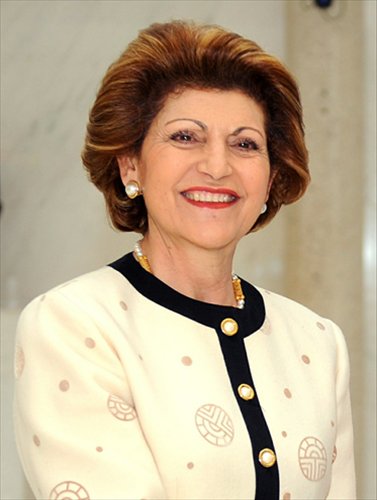Cultural exchanges key to Sino-EU ties

Androulla Vassiliou
Editor's Note:
Following Chinese President Xi Jinping's recent European trip, cultural dialogue between China and Europe has been hotly discussed. What specific measures can be taken to promote stronger education and cultural exchanges between China and Europe? And how will such communication benefit the comprehensive ties between the two sides? Global Times (GT) Brussels-based special correspondent Liu Ge talked to Androulla Vassiliou (Vassiliou), EU Commissioner for Education, Culture, Multilingualism, Sport, Media and Youth, on these issues.
GT: As one of the most important pillars of China-EU relations, the China-EU High-Level People-to-People Dialogue (HPPD) has been running for almost two years since 2012. How would you evaluate its role?
Vassiliou: The EU-China High-Level People-to-People Dialogue constitutes what we call the "third pillar" of EU-China relations, complementing the High-Level Economic and Trade Dialogue and the High-Level Strategic Dialogue.
Since its start, the HPPD has already launched a range of joint initiatives, including the EU-China Year of Intercultural Dialogue in 2012 and support for stronger cooperation between universities on the two sides.
The dialogue is helping build understanding and trust by bringing people together so that they can get to know each other's culture, share ideas and work together on common projects.
I think we are gradually developing a common language, if you like, while respecting our diversity.
GT: In the past two years, what specific achievements have been made under the HPPD framework?
Vassiliou: In education, we have set up a Higher Education Platform for Cooperation and Exchange to tackle issues of mutual interest and share new ideas.
We have also implemented the China Tuning project, aimed at identifying and jointly defining learning outcomes so that we can better compare our education systems.
This in turn will help students and teachers to move more easily between the two regions.
In the area of multilingualism, we have supported the training of 18 Chinese professors in lesser-spoken EU languages, and promoted the Chinese Interpreter Training Program.
A language training scheme was also offered by the Chinese government to EU officials.
Some 30 officials took part in 2013, and a further 25 are expected to participate in 2014 and 2015 respectively.
In culture, we funded a number of joint projects as part of the 2012 EU-China Year of Intercultural Dialogue, and organized an online EU Film Festival in China.
In the youth sector, we have organized joint seminars on youth work and entrepreneurship and have encouraged cooperation between organizations in the youth sector, such as the All China Youth Federation and the European Youth Forum, as well as their member organizations.
GT: As Commissioner in charge of youth affairs in the EU, what is your perspective of the young generation in the EU and China?
Vassiliou: Through the new programs and the follow-up of the HPPD and Higher Education Platform for Cooperation and Exchange, as well as, in particular, the China Tuning project, we will open up new opportunities for the young generation in both the EU and China.
China and the EU will also expand opportunities for mobility in education and increase the number of exchanges of students, academics as well as researchers. We will work together to improve the mutual recognition of academic qualifications.
This will help open the minds and horizons of both Chinese and EU youth, through a better understanding of each other and enhanced language and intercultural skills. Ultimately this leads to better employment opportunities.
The 2011 EU-China Year of Youth already included seven flagship events, 27 joint youth projects and hundreds of other activities aimed at creating partnership and friendship.
The same is true for the 40-plus joint cooperation projects funded under the Youth in Action Program in the past three years. We will continue to promote this approach.
We look forward to welcoming more Chinese students to Europe over the next few years, and we hope that a large number of Europeans will come to China and expand their horizons as a result.
GT: You will visit China to chair the second Meeting of the HPPD in Beijing in late May. What are your goals for this important meeting? What achievements do you expect to achieve during your trip to China?
Vassiliou: The second round of the HPPD will take stock of our achievements so far and agree on future action.
The dialogue will help promote the EU's new programs for education, training and youth and the parts of the new Horizon 2020 research program under my responsibility.
We will discuss higher education internationalization strategies, fine-tune our approach to cultural diplomacy and promote the contribution of culture to local development.